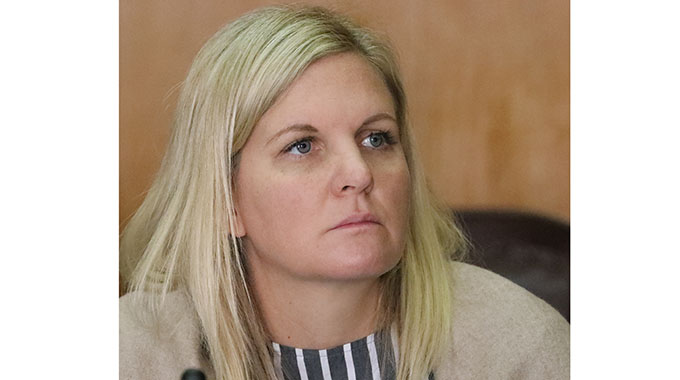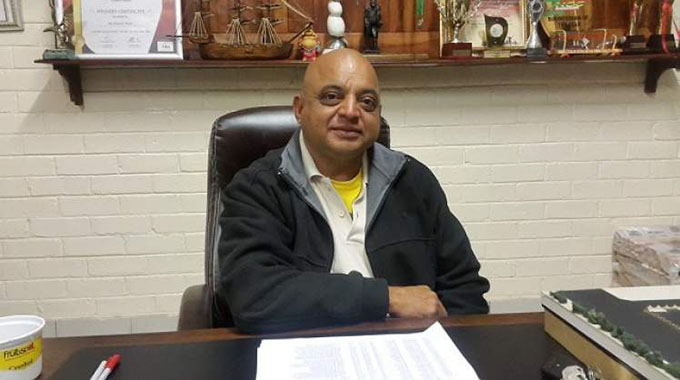EDITORIAL COMMENT: Sports facilities due for facelift

THE provision of infrastructure and facilities commensurate with international standards remains key to the development of sport in many developing countries, Zimbabwe included.
Sport the world over is now big business with capacity to contribute significantly to the country’s Gross Domestic Product (GDP) if things are done properly.
But for this country to reach the lofty heights and enjoy the benefits of being a sporting nation, it is critical to pay attention to the facilities we have.
It is an undeniable fact that apart from being a mega industry that employs thousands of people directly and indirectly, sport can be a tool to foster unity and development as it breaks racial, cultural and tribal barriers.
The youth, who otherwise could find themselves trapped in many social vices like drugs, gambling, prostitution, hooliganism and other crimes can find an escape route in sporting activities.
As we reported earlier this week, it appears Zimbabwe still has a long way to go in realising and unlocking the true value of sport, both as an industry and a major tool for nation-building.
If recent trends are anything to go by, the widespread disregard for sports facilities gives the impression that sport is of little significance to us as a people.
However, Government has always had the conscience to take sport as a powerful tool by providing community sport and recreational facilities countrywide and facilitating the building of facilities like the National Sports Stadium, the Chitungwiza Aquatic Complex, Khumalo Hockey Stadium and Magamba Hockey Stadium.
Sadly, several of these projects, most of which gobbled millions of dollars, have now turned into white elephants or are in a sorry state due to neglect.
The major facilities which have either become an eyesore due to neglect or have been turned into venues for non-sports events include the Chitungwiza Aquatic Complex, Magamba Hockey Stadium, Mbare Netball Complex and the Khumalo Hockey Stadium in Bulawayo, which were all constructed when Zimbabwe successfully hosted the 1995 All-Africa Games.
The 1995 All-Africa Games remain the biggest sporting event that this country hosted and led to major refurbishments being done on Rufaro, Barbourfields and Luveve stadiums.
Local municipalities have not helped matters.
They are the major culprits in reversing the gains the country had made in trying to make sport a big industry.
The fact that one of the popular football venues in Harare, Gwanzura, has not been able to host any games for the past two seasons because of its poor state speaks volumes about the responsible authorities’ lack of seriousness.
This comes as residents of Waterfalls, Harare, have launched a spirited fight to save a former sports club from being demolished to make way for residential stands.
Gweru residents have also received shocking news that the Midlands city’s municipal authorities intend to turn the land housing the 100-year-old Gweru Sports Club into residential stands.
Then there are also various football stadiums and community facilities in areas like Mhangura, Bindura, Kadoma, that have been decaying because of lack of maintenance countrywide.
These facilities are important in the development of talent. There cannot be any serious sport in the country when there are no facilities or if the infrastructure is run down.
It is against this background that we welcome the initiative by Youth, Sport, Arts and Recreation Minister Kirsty Coventry to have the facilities around the country audited.
Coventry was a gold medal winning Olympian and she has a right to be worried when swimming pools across the country are being destroyed to make way for residential stands.
Once the audit is done, the minister wants to find ways to prop up the existing facilities while efforts are made to ensure access to all facilities by athletes across the divide.
Privately-owned sports clubs have done their part to keep their standards, but it is the public institutions which should be used by the majority at minimal costs which need serious attention.
It is thus important that everyone responsible for the sporting facilities fits into the Government’s Vision 2030.
NBA vice president and managing director for Africa Amadou Gallo Fall was recently in the country and also expressed a desire to help Zimbabwe construct world-class basketball facilities.
But local authorities have to show the commitment to maintaining and retaining the few facilities the country has while construction of more infrastructure is done at provincial and national levels.
While Minister Coventry could be on the right track, her ministry could be pegged back by the fact that they do not have direct control over public facilities in the country which are owned and controlled by local councils and the Ministry of Local Government, Public Works and National Housing.
We therefore suggest the setting up of meaningful synergies between the line ministries to ensure sport infrastructure gets the attention it deserves.









Comments